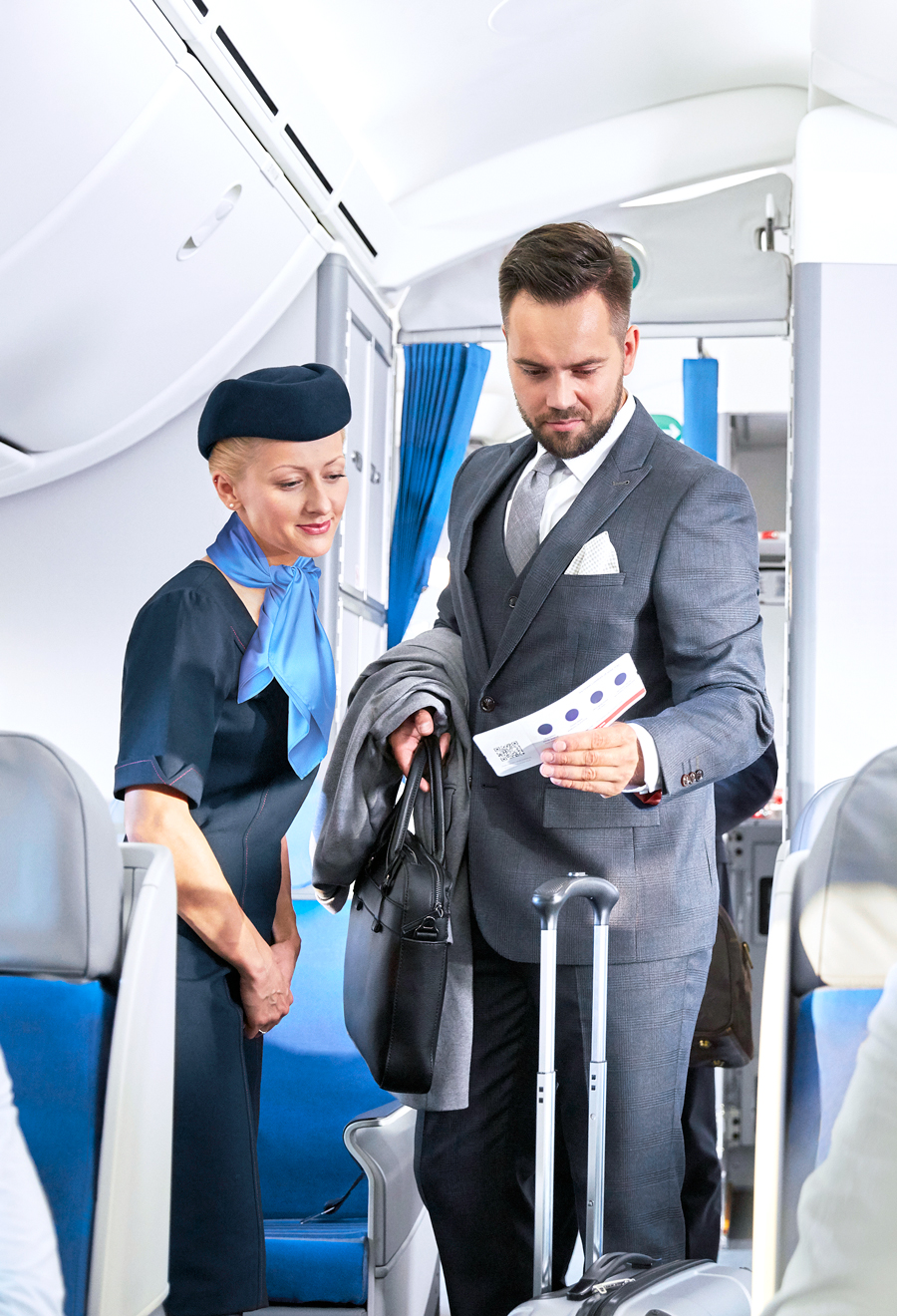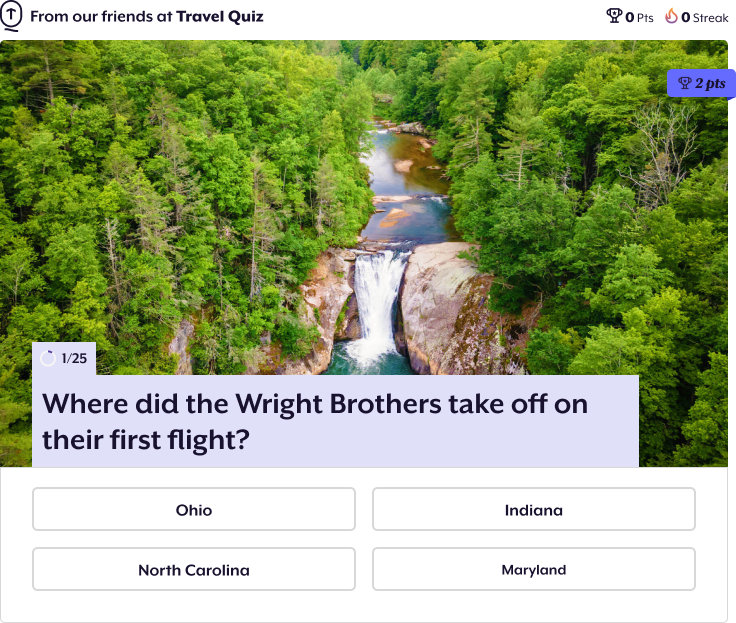The seat you select on an airplane can make or break your flight experience. But even if you’ve researched the seat map to find the perfect seat, sometimes seating arrangements don’t go as planned. Whether you’re trying to switch seats or a fellow passenger asks you to do so, it can be an awkward conversation. What’s the proper etiquette for this common airplane dilemma? Here’s what experts are saying about the great airplane seat-swapping debate.
Is It OK To Switch Seats on an Airplane?
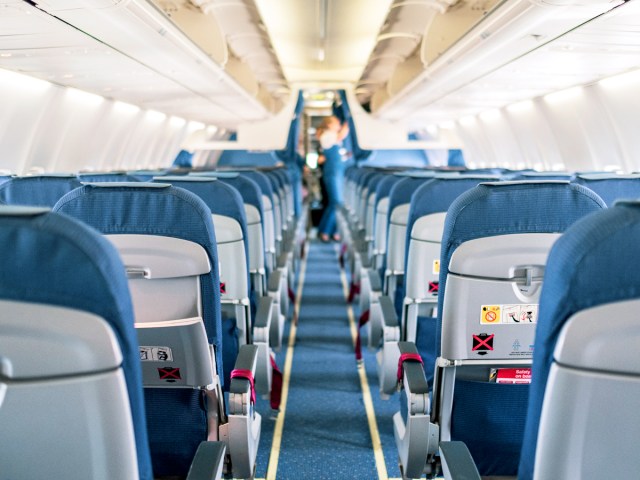
Sometimes, a seat change is more than a preference — it’s a necessity. Whether you’re separated from a child or facing an uncomfortable situation, most industry experts agree that it’s completely acceptable to inquire about a new seat. However, the way you approach the switch can make all the difference.
As etiquette expert Rosalinda Randall explained to Good Morning America, “It’s always OK to ask anybody anything,” but you should also “be ready when someone replies to you with the answer that you weren’t expecting.” In other words, be prepared to hear “no.”
Airplanes can be high-stress environments with anxious and tired passengers and busy crews, so understanding proper etiquette and being polite helps avoid awkward encounters and maintain a pleasant experience for everyone. If you find yourself in a situation where you simply must switch seats, you have a few options.
How To Ask a Fellow Passenger To Switch Seats
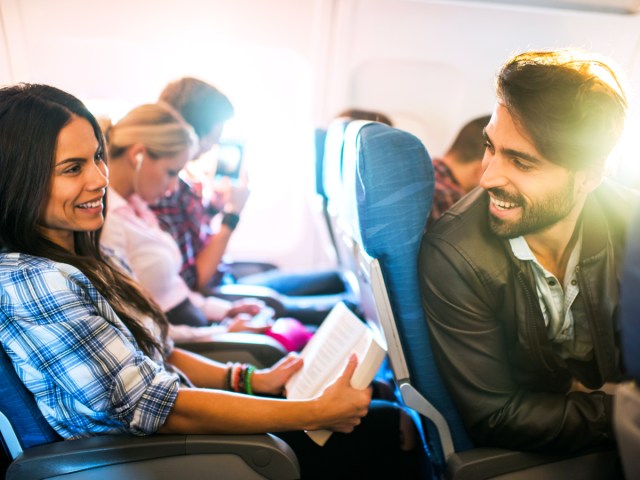
Many passengers put careful thought — and sometimes extra dollars — into selecting their ideal seat. “Just be aware that the person may have chosen that seat for a very specific reason. They may have paid for it,” Sara Nelson, international president of the Association of Flight Attendants-CWA, AFL–CIO, told GMA. Proximity to the lavatory, quick deplaning, and extra legroom are just a few things passengers often splurge on.
If you’re asking to swap, you’ll have better luck if it’s a fair trade or better. For example, don’t ask someone in a premium economy aisle seat to swap with your middle seat near the back of the plane. If you’re offering a seat of greater or equal value, your odds of success go up. For example, if you want to sit by your child, you might offer the person next to them your aisle seat in a different row in exchange for their middle seat next to your child. It’s also best to keep the tone kind and casual — you never know why someone else might be flying or what type of day they’re having.
If you’re on the receiving end of a seat-switch request and don’t feel comfortable doing so, a simple “No, thank you, I prefer this seat” is polite and clear. You could mention that you specifically booked (or paid for) the seat if you want to give additional reasoning. A courteous approach can go a long way, but ultimately, you are under no obligation to comply. “It’s more than OK to say no,” etiquette expert Jo Hayes told Newsweek.
When To Ask a Flight Attendant About Seat Swaps
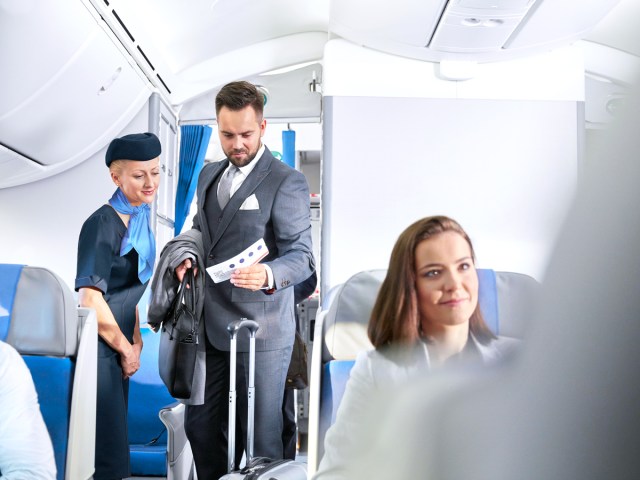
If the thought of negotiating a seat swap makes you anxious, consider asking a flight attendant for help. If you have a valid reason for swapping, such as sitting by your young child or needing extra space for medical reasons (not just that you’d prefer a window over an aisle), they’ll be able to assist.
In fact, flight attendants prefer that you speak with them before making a switch — even to an empty seat. Cabin weight balance, safety regulations, and seating assignments are important considerations, so don’t just assume you can move wherever you want. Also remember to be patient and polite when you ask: Flight attendants have busy jobs and juggle many other responsibilities during boarding, and safety is their top priority.
Pro Tip: Ask a Gate Agent First About Switching Sweats
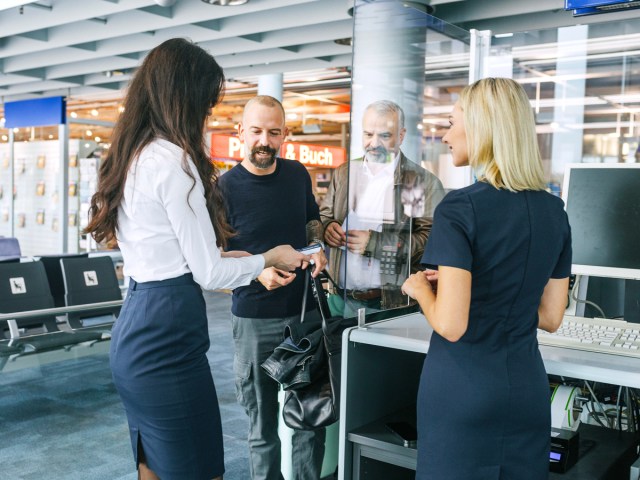
The best time to solve a seating issue is before you set foot on the plane. So, if you know you’ll need a new seat assignment, chat with the gate agent before boarding begins. Gate agents have access to the airplane’s seat map because they assign seats to standby passengers right before boarding. The agent might be able to shuffle things around to accommodate your needs.
While gate agents can’t always work miracles, they have more flexibility before boarding begins, so be sure to get to the counter early if you have a request. If they can’t help solve your dilemma, they might be able to give a heads-up to your flight attendant, who will appreciate your proactive approach to the situation.
At the end of the day, patience is key to a successful seat swap. Whether you’re making the request or are on the receiving end of one, a little empathy makes the journey safer and more comfortable for everyone.
More from our network
Daily Passport is part of Inbox Studio, an email-first media company. *Indicates a third-party property.






